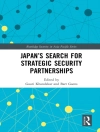The civilian role in managing the military has never been more important. Today, civilian leadership of defense policy is challenged by the blurring line between war and competition and the speed of machine decision-making on the battlefield. Moreover, the legitimacy of political leaders and civil servants has been undermined by a succession of foreign policy failures and by imbalances of public faith in the military on the one hand and disapproval of civilian institutions on the other. A central question emerges: What does appropriate and effective civilian control of the military look like?
Combining scholarly expertise and firsthand civilian experience in the Department of Defense, Friend argues that civilians combine authoritative status, institutional functions, and political expertise to ensure that democratic preferences over the use of force prevail. Friend focuses on the ways political context shapes whether and how civilian controllers—the civilians in professional and institutional positions with the responsibility for defense matters—exercise control over the military and each other. Mightier Than the Sword provides insights that enrich civil-military relations scholarship, as well as lessons aimed at revitalizing American democracy.
Tabla de materias
Introduction: Why Study Civilians?
1. Who (and What) is a Civilian?
2. A Framework for Civilian Control
3. Civilian Control after the Cold War
4. Civilian Control and the War in Afghanistan
5. Civilian Control and Capabilities
Conclusion: The Civilian Ethic
Sobre el autor
Alice Hunt Friend, Head of AI & Emerging Tech Policy at Google, is a national security policy expert and a former civilian in the Office of the Secretary of Defense. She is an adjunct professor at Georgetown University and American University.












